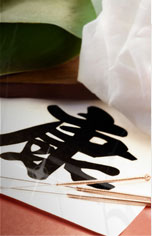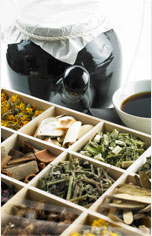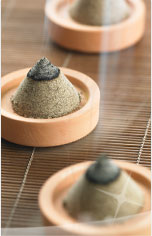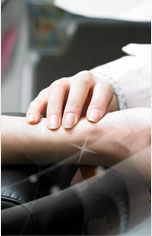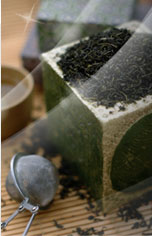| |
Postpartum Care with Acupuncture and Chinese Herbs |

The postpartum period refers to the first 6 weeks after childbirth. In the first few hours and days after childbirth, you will experience many physical and emotional changes. Over the next six weeks, your hormone levers and the uterus start returning to the way it was before pregnancy. Your breasts, which began enlarging during pregnancy, will be filled with breast milk and may become enlarged, firm, and painful. Some new mothers develop physical problems after childbirth such as infections, difficulty urinating, constipation, or hemorrhoids. You might feel irritable, indecisive, anxious, and prone to sudden mood swings after childbirth, and some women may experience postpartum depression which often requires proper treatment.
TCM Postpartum Care
|
|
Postpartum period is a crucial time for the new mother to recover and heal. Traditional Chinese Medicine (TCM) has a long history of providing special care for new mothers using diet, herbal medicine, and acupuncture. TCM believes that the care a woman receives during the postpartum period will influence her reproductive health and overall well-being for the next few years. Although postpartum usually refers to the first 6 weeks after childbirth, TCM postpartum treatment can take 3-6 months, depending on the patient’s condition.
Postpartum acupuncture and Chinese herbal medicine can help you heal and recover, regain full strength and vitality, restore the balance in the reproductive hormones, and boost immunity. They can address any residual aches and pains from labor, fatigue, and postpartum depression or anxiety. TCM can also support Caesarean section recovery and breastfeeding issues.
|
|
Benefits of TCM Postpartum Care
|
|
Postpartum Tonification
In China, during the first 30 days after childbirth, a new mother is expected to do nothing more than rest, feed, and bond with her newborn baby. For some women, this might take 4 -6 weeks or even longer, depending on the needs of the woman. It is also important for women to avoid exposure to Wind and Cold, and anything that may disrupt the harmony of their emotions, because TCM believes that women in the postnatal period are particularly vulnerable and prone to suffering from weakened Qi (the vital energy of the body) and Blood.
For the first 30 days (up to 100 days in some cases), TCM treatments are focused on rebuilding Qi and Blood lost through pregnancy and childbirth. This concept of tonifying Qi and Blood applies to all women, not just those that feel exhausted following a difficult pregnancy or labor. By tonifying Qi and Blood, TCM postpartum care can promote healing and recovery, restore full strength and vitality, boost immunity, prevent mental and physical disharmonies (including postpartum depression or anxiety), and produce sufficient breast milk. Acupuncture, Chinese herbal medicine, moxibustion, and dietary therapy are often used to tonify Qi and Blood.
|
Postpartum Discharge (Lochia)
Whether the baby was born through vaginal delivery or Caesarean section, every new mother will have lochia, the postpartum vaginal discharge containing blood, mucus, and uterine tissue. It is mainly caused by the placenta coming away from the wall of your uterus, but additional blood might also come from any cuts or tears endured while giving birth.
In the first 1-4 days, lochia is typically fresh red or browny-red. The flow of blood may be quite heavy, and there may be one or two quite large blood clots (as large as a plum) and/or several smaller clots (about the same size as grapes). Until around 10 day post-delivery, lochia becomes pinky brown and more watery in consistency and may contain little blood clots (about the size of a raisin or smaller). Up to 6 weeks after giving birth, women may have a small amount of pink or yellowish white discharge.
Acupuncture and Chinese herbal medicine can treat both retention of lochia and persistent lochial discharge. Retention of lochia is characterized by the complete absence of lochial discharge or by a very scanty discharge, usually accompanied by abdominal pain. In TCM, retention of lochia is always associated with Blood stasis. This may arise when emotional imbalance leading to stagnation of Qi; or when invasion of external Cold in the Uterus during or after labor. TCM believes that clearing the uterus by maintaining proper lochial discharge is crucial to rectify menstrual irregularities and prevent them from occurring. By invigorate Qi and Blood and warm the lower abdomen, acupuncture and Chinese medicine can promote lochial discharge and support the reproductive health and overall well-being of women.
Persistent lochial discharge refers to lochia that continues to contain obvious red blood and/or blood clots after 2 weeks. In TCM, persistent discharge may arise when Qi becomes weak after childbirth and cannot hold the Blood in place; when the Blood vessels and the Uterus are obstructed by stagnant Blood resulting in leakage of newly generated Blood; or when pathogenic Heat invasion is making the Blood reckless and pushed out of the Blood vessels. Acupuncture points and Chinese herbs will be carefully selected to stop bleeding and nourish Qi and Blood without causing stagnation.
Call 911 or contact your OB doctor immediately in case of heavy bleeding beyond the third day after birth, large clots bigger than a plum, or bleeding that soaks more than one sanitary pad in an hour which doesn’t slow down or stop.
Residual pain and other discomforts
|
|
Most women experience some degree of pain or discomfort after childbirth. If you had a Cesarean birth, you have pain at your incision site and it is uncomfortable to move, cough, and even laugh.
Contraction of the uterus back into the original position following childbirth also gives you sharp cramp-like pains in the abdomen, called afterpains. They are normal, but can be uncomfortable. Afterpains begin shortly after the delivery of placenta, and are usually strongest on the second and third days following delivery, often more severe when you breastfeed. Breastfeeding triggers the release of oxytocin, which causes the uterus to contract.
The perineum (area surrounding the vaginal opening) may be bruised and swollen from a tear or episiotomy (a surgical incision to enlarge the vaginal opening). Some women experience little or no discomfort, while others experience dull, aching pain. Swelling and discomfort usually peak on the second or third day after delivery, but it is difficult to predict how long the discomfort will persist.
You may also have dull pain or feeling of pressure around the anal area from hemorrhoids. Hemorrhoids are protruding veins in the rectum that often become prominent during pregnancy or labor and easily aggravated by constipation, which commonly follows delivery. They may become swollen and tender, sometimes itch, and may bleed.
Acupuncture can provide great relief to the pain and aches by increasing the smooth flow of Qi and Blood. Both local and distal acupuncture points are used to alleviate discomfort in the body. Patients and/or their support people are often instructed how to apply pressure on some acupuncture points at home as well.
Combined with acupuncture treatments, internal and external use of Chinese herbal medicine can promote faster healing and recovery by nourishing Qi and Blood and facilitation circulation at the same time. Chinese herbal sitz bath is especially helpful for perineal discomfort and hemorrhoids.
|
|
Chinese Herbal Sitz Bath
Ingredients:
- Ai Ye (Mugwort) 30g
- Yi Mu Cao (Motherwort) 20g
Instructions:
- Put the herbs in a muslin bag.
- Place the herbs in a pot filled with water and bring to boil.
- After boiling, discard the herbs.
- Place a cleaned plastic sitz bath bowl on the rim of the toilet.
- Pour the herbal solution about halfway into the sitz bath bowl and fill with cold water. Make sure the water temperature is comfortable.
- Gently sit down on the sitz bath bowl. Sit for 10-15 minutes.
*NOT suitable for women with fever after labor
|
|
Breastfeeding Problems
Acupuncture and Chinese herbs can improve breast milk quantity and quality. Acupuncture facilitates the circulation of Qi and Blood to enable the transformation of Blood into breast milk and to express breast milk properly. Chinese herbal formulas nourish the source of breast milk, Qi and Blood, and restore any imbalances of internal organs. For more information, click here.
Acupuncture and Chinese herbs can also alleviate discomfort from breast engorgement and mastitis, which are common among breastfeeding mothers. By promoting the smooth flow of Qi and Blood in the meridians that correlate to the breast tissue and ducts, acupuncture can break the blockage, thereby reducing engorgement and inflammation. Chinese herbs can enhance the effect of acupuncture by restoring Qi and Blood needed to clear up the infection and fasten healing and recovery. Herbal formulas can be safely combined with antibiotics prescribed by doctor for mastitis and are safe for the breastfeeding infant.
Postpartum Depression / Anxiety
Acupuncture and Chinese herbs are proven to be effective in treating depression and anxiety. TCM believes that the mind and body are intimately connected. The exertion and loss of blood occurring at childbirth induce a state of Qi and Blood deficiency. Breastfeeding also consumes a lot of Qi and Blood. Since the Heart houses the mind and governs the Blood, and when the Heart is not getting enough nourishment from Qi and Blood, the mind has no residence and it becomes disrupted. This can manifest as disturbed sleep, palpitations, agitation, trouble concentrating, anxiety and depression. Acupuncture and Chinese herbs are used to calm the mind and relieve depression and anxiety by nourishing Qi and Blood and restoring the balance of the organ system. For more information, click here.
NOTE: The names of organs are capitalized when referring to the entire, functional organ systems in TCM perspective: Liver, Blood, etc. The names of organs are lower-cased when referring to the distinct, biomedical organs: liver, blood, etc.
|
|
|

